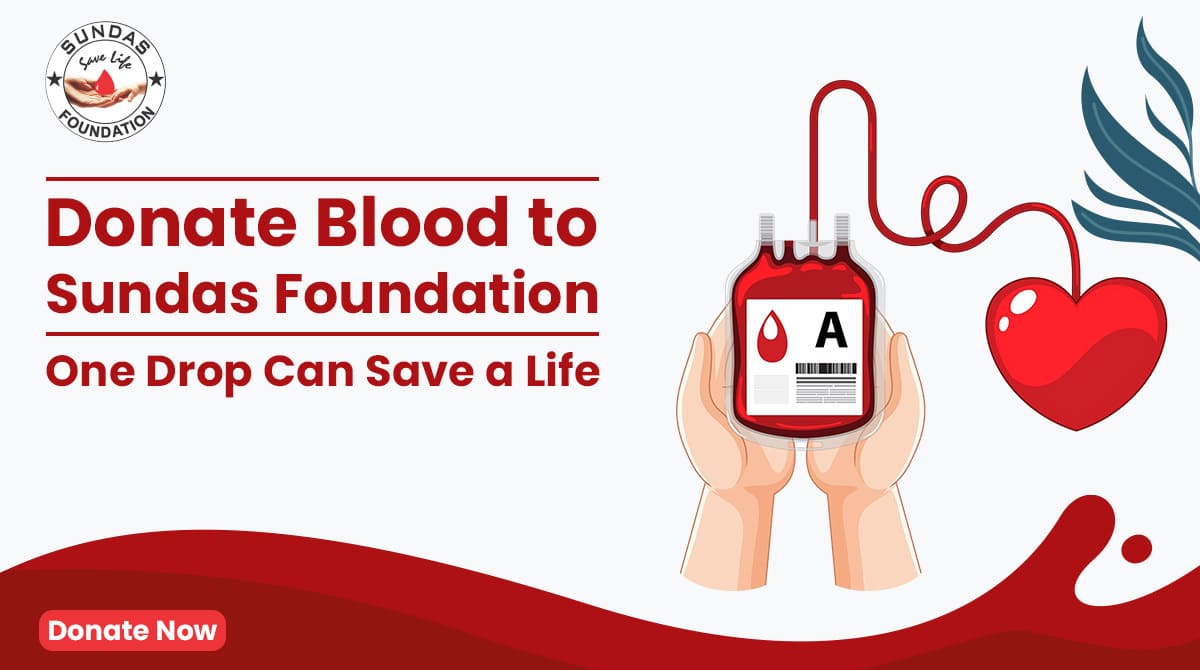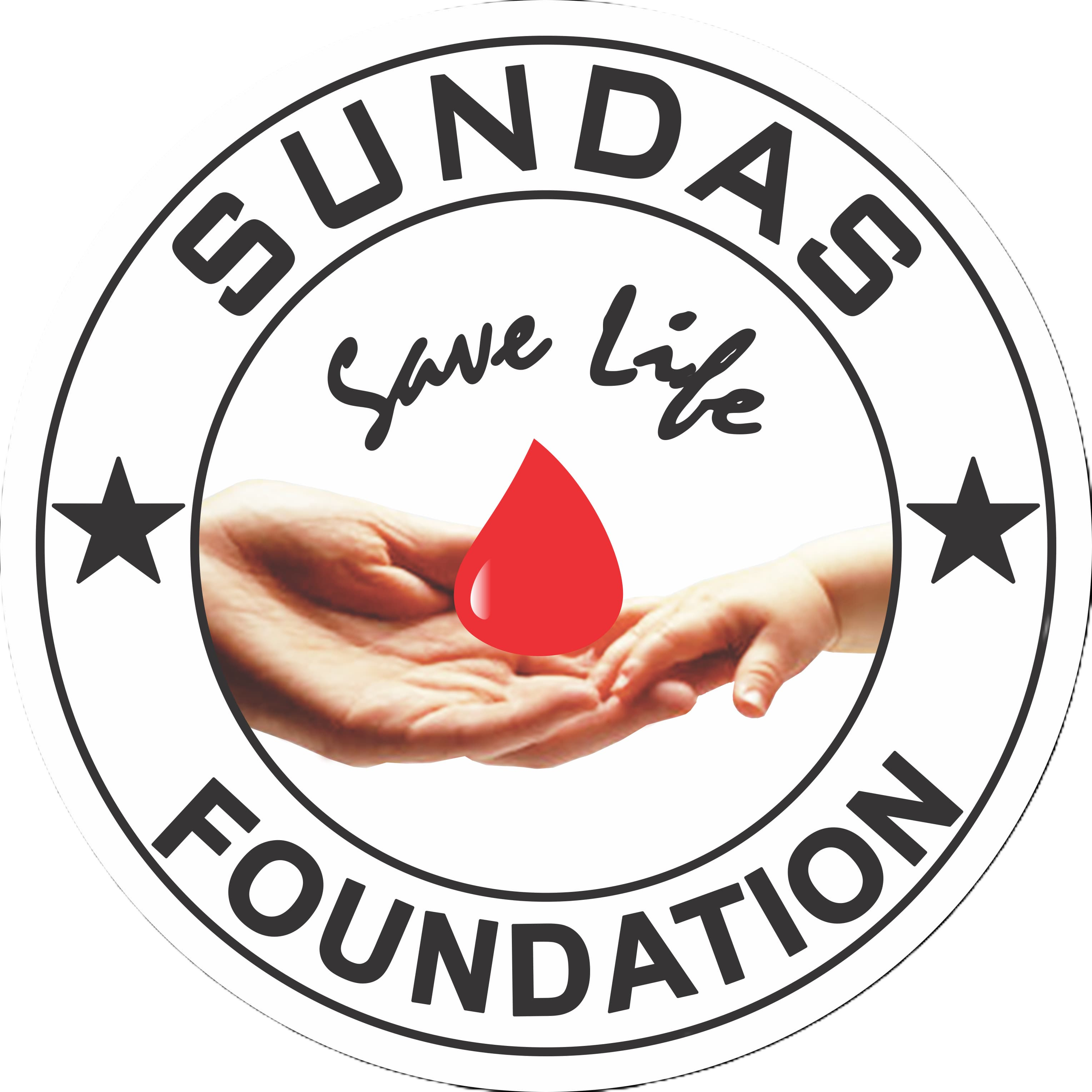
Donate Blood to Sundas Foundation
Blood donating is an easy yet effective way to improve someone's life significantly. We at Sundas Foundation understand how important blood donation is, particularly for those with diseases like thalassemia. You are providing a lifeline to people in dire need when you donate blood. Everything you need to know about blood donation, including eligibility requirements, advantages of blood donation, and much more, will be covered in this article.
Why Donate Blood?
Blood Donation saves countless lives every day. Blood is essential for childbirth, cancer treatments, surgeries, and, most importantly, for patients with chronic illnesses like thalassemia who need frequent blood transfusions. You can guarantee that hospitals have a consistent supply of blood for patients in need by giving blood. Your donation could save a life, as the Sundas Foundation is committed to gathering blood for these patients.
Advantages of Donating Blood
In addition to helping others, donating blood has major health advantages for the donor. The following are some main benefits of blood donation:
1. Improves Heart Health
Donating blood may reduce the risk of heart disease. It aids in preserving appropriate blood iron levels. High iron levels have been linked to an increased risk of heart disease. The body's iron levels can be balanced with blood donation.
2. Boosts the Production of New Blood Cells
Your body attempts to replace the lost blood when you donate. This process keeps your body in optimal condition by promoting the production of new blood cells.
3. Reduces the Risk of Certain Cancers
Frequent blood donation may lower the risk of cancer, especially liver cancer and other cancers linked to the body's excess iron levels. This is because when blood is donated, the body routinely eliminates extra iron.
4. Burns Calories
It may surprise you to hear that donating blood burns calories! Blood donating and letting your body produce it burns about 650 calories, so it's a healthy activity.
5. Mental Satisfaction
It gives you a great sense of fulfilment and joy to know that your blood donation can save lives. It is among the most selfless methods of giving back to the community.
What is Power Red Blood Donation?
Strength Red blood donation is a unique kind of giving in which the donor gives only red blood cells, which are essential for patients with severe Anemia or blood loss. An apheresis machine is used in this kind of donation to separate the red blood cells from the white blood cells, plasma, and platelets. The donor can donate a larger concentration of red blood cells because the plasma and other components are returned to their body.
Advantages of Donating Power Red Blood:
• Higher Yield for Patients: More red blood cells are provided by power red donations, which are essential for patients in need of concentrated red blood cells, such as those receiving trauma treatment or surgery.
• Less Frequent Donations: Because you're only giving red blood cells, donors can usually give every 16 weeks as opposed to every 8 weeks when giving whole blood.
Blood Donation Eligibility
It's crucial to confirm that you meet the requirements before giving blood. Although country-specific requirements may differ slightly, the following are general guidelines for donors:
Blood Donation Camp
The Sundas Foundation regularly hosts blood donation camps in a number of locations, if you're looking for one close to you. For information on future camps, visit our website. Donating blood at a local camp can be a wonderful way to give back to your community and make it easier for you to assist those in need.
Blood Donation Certificate
When you donate blood, some organizations offer a certificate of appreciation as a token of gratitude for your selfless act. Sundas Foundation also provides certificates to our regular blood donors to acknowledge their valuable contribution to saving lives.
Blood Donation Camp Notice
Sundas Foundation issues notices for our upcoming blood donation camps. These notices provide details about the time, location, and other important instructions. Make sure to stay updated by checking our website or subscribing to our newsletter for the latest information about blood donation events.
Why Donate Blood to Sundas Foundation?
The Sundas Foundation serves as a lifeline for thalassemia patients throughout Pakistan and is more than just a blood bank. You can directly support free, life-saving treatment for underprivileged kids who cannot afford pricey transfusions by donating blood here.
Additionally, you can contribute money to help us achieve our goals. These contributions enable us to keep up with equipment maintenance, set up camps, and guarantee the secure transportation and storage of blood.
Donate Blood. Donate Money. Donate Hope
FAQs
Can Diabetic Patients Donate Blood?
Yes, diabetic patients can donate blood if their condition is well-managed and they are not on insulin or experiencing complications. Before donating, it is always advisable to speak with a physician.
Can Smokers Donate Blood?
As long as they are healthy, smokers are eligible to donate blood. However, it is advised to abstain from smoking for a few hours before donating. To guarantee that the blood is in the best possible condition, donors are advised not to use marijuana before giving blood.
When you donate blood, how much do they take?
During a whole blood donation, approximately 450 milliliters (one pint) of blood is typically drawn. The body can easily and safely replenish this amount.
What Should I Eat Before Giving Blood?
Consume a healthy meal that contains foods high in iron, such as legumes, red meat, and leafy greens. Staying hydrated and avoiding fatty foods can have an impact on blood quality.
How Many Blood Donations Are Allowed in a Year?
A person can donate whole blood once every 56 days (8 weeks), or about six times a year. The average gap for Power Red donations is sixteen weeks.
Can I Donate Blood Every Month?
No, blood donations should be spaced out sufficiently to give your body time to replenish its blood supply. Power Red donations are spaced out every 16 weeks, whereas whole blood donations can be made once every two months.
Donating blood is a potent way to change someone's life. We at Sundas Foundation encourage you to donate blood and think about helping us treat thalassemia for free for patients in need. Donating blood not only benefits those in need but also enhances your well-being.

